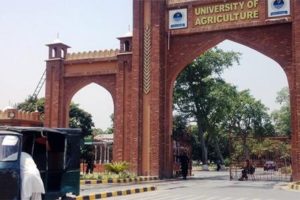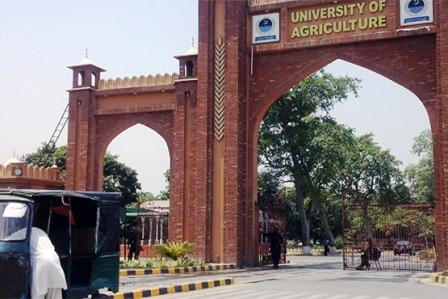A Pakistani University will be the first to house a Catholic church and has allotted one square kilometre for its construction, a brave move given the many reports of intolerance against religious minorities in that country.
While most Pakistani universities host mosques, UAF will be the first to allow a Christian house of prayer on its campus. An area has been set aside near the quarters of 70 Christian university employees, most of them working as sanitary workers, gardeners and support staff.
For Farrukh Habib, UAF music teacher, this is a dream come true.
“This will be the first Muslim university to have a minority place of worship. Now our children can access catechism right on their doorstep. Christian students are happy too. We thank both the university administration and the diocese,” Habib told ucanews.com.
“Islami Jamiat-e-Talaba, the largest student union in the country usually oppose cultural activities in other universities but here they respect us,” he said.
More than 400 Christians in UAF celebrated when Bishop Joseph Arshad of Faisalabad, together with the Muslim Vice Chancellor of UAF, laid the church foundation stone on May 16.
Faisalabad Diocese will contribute 300,000 rupees (US$4,500) toward the project whose total cost is estimated at 7.6 million rupees. The university has allotted over a square kilometer for the church construction.
Established in 1906 as the first major institution of higher agricultural education in the undivided Punjab, UAF houses more than 20 mosques and has separate hostels for women and men.
According to Habib, it was not easy to get the plan approved. “In 1990s, we submitted a request for a church building but the administration did not agree. There were no lawns in the proposed plan but now a clean environment will also benefit the worshippers,” said Habib.
Back then, UAF employees said the dirt ground near their homes must be transformed as well as the church being built. “We need lawns as a venue to hold church programs as well as arrange marriages in our community,” Habib said.
Bishop Arshad held a ground-breaking ceremony for the campus church in 2015 but the project still stalled. Bishop Arshad said it took him another three years to negotiate with university officials.

“We had to work hard as many officers kept delaying our proposal,” Bishop Arshad. “Finally, we have great news for the whole Christian community in Pakistan. This is a landmark for the diocese.”
Chapels in government-run health or educational facilities are a rare phenomenon in Pakistan which has suffered terrorism and religious fundamentalism for decades. Most of the incidents of mob attacks and suicide bombings on Sunday worshipers have been reported in Punjab, home to over 1.5 million Christians.
There are no places of worship for Hindu or Sikh students in 108 state-run universities. As opposed to Muslims, who openly pray in parks and roads, Christians and other religious minorities prefer to pray indoors.
Saad Suleman, a doctoral candidate in Veterinary Medicine, said his Muslim friends congratulated him the day the university church was announced.
“Christian students face difficulty in getting combined rooms in the hostels [even though] we have a strong administration who try to avoid religious problems,” he said.
“The vice chancellor gave us permission to hold a Christmas program in 2014. However, it was cancelled due to the Peshawar school massacre. We never asked again,” said Suleman.
“The Catholic cathedral, situated three kilometers from UAF, is our usual Sunday destination. Now we have our own church, we will be able to offer regular prayers like other students,” he added.
[inputs from UCAN]


